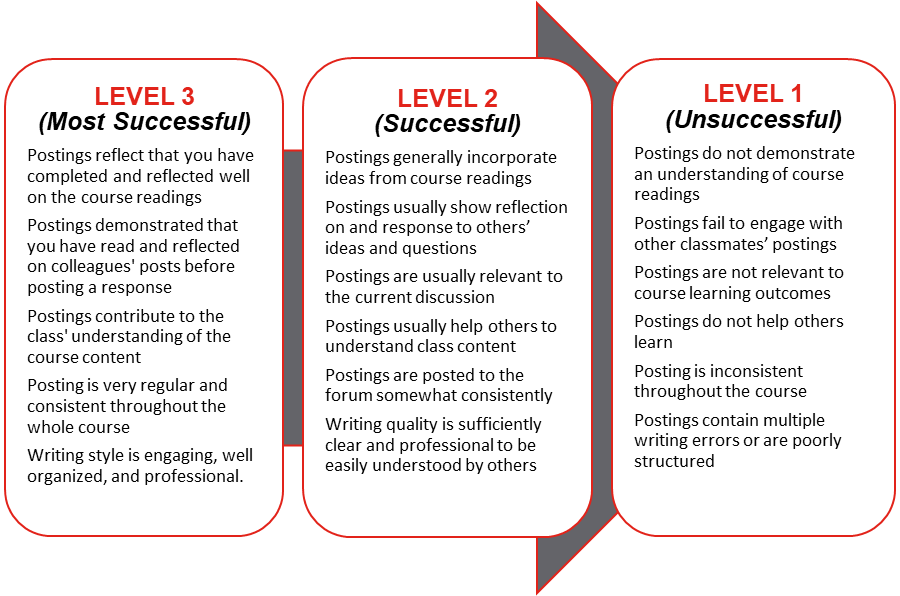6.5 Online Discussion Forums
Opportunity
Communicating in Online Discussion Boards
The tools we have at our fingertips for online communication are vast and varied. We learned in Chapter 1 that communicating through professional email, from your FanshaweOnline email account is the preferred tool and there are certain rules for formal email. We also identified the key elements that need to be included in an email and saw how those element help organize incoming mail, help prioritize response time and ultimately, help us make good use of our time.
 Every organization will have different acceptable communication tools and policies and being able to learn and apply the rules will make you an efficient communicator.
Every organization will have different acceptable communication tools and policies and being able to learn and apply the rules will make you an efficient communicator.
Many online courses include discussion boards and forums, either as a required assignment, or to support your learning process, so this section will focus on how you can use online discussion forums to support your learning in the best way possible.
Discussion forums are a tool for creating collaborative learning relationships. They can also be a low-stakes way to express your developing ideas, and to get feedback on the ways in which you are learning the course material as you work towards larger assignments.
What Makes a Good Forum Post?
The sample rubric below outlines what distinguishes stronger online posts from those that are less successful. Review the chart below. What do you notice? If your instructor has provided a rubric for online posts, read the rubric, and identify your instructor’s criteria for success (Fenwick & Parsons, 2009).
Image Credit: Christina Page; Andrew Stracuzzi
Tips for Participating in Forums
- Develop a clear understanding of the expectations and ground rules for the forum. Review your course presentation (syllabus) to guidance on how often to post, the type of content to include in each post, and the best way to respond to others’ posts.
- Make connections between your posts and the content you are learning in the course. A forum post is often an excellent place to engage in critical reflection. Make connections between the course content and the ways that your growing understanding are shaping your present and future practice.
- Set a regular schedule for posting and commenting on forums. This prevents the amount of content from becoming overwhelming, and allows you to develop stronger relationships in the course by regularly engaging with classmates.
- Include resources that might be useful to other classmates or your instructor in your posts.
- Use language that is appropriate for an academic environment. Avoid writing in a way that is too informal (ie. writing that resembles a text message).
- Make sure that each post is clearly written and well structured. Take time to clarify the message you want to communicate in your post, and organize your content into clear and concise paragraphs. This is easier for your reader than a long or disorganized post.
- Respond to others’ posts in a supportive and challenging way. In writing, messages may be unintentionally misinterpreted. Be sure that your responses to others are respectful, positive in tone, and do not appear angry, even when you wish to disagree or present an alternative viewpoint.
- Participate in the community discussion. Read others’ comments before posting, and connect your ideas with what you are hearing from your classmates (Pappas, 2015).
“5.2 Communicating in Online Forums” from Learning to Learn Online at Fanshawe by Kwantlen Polytechnic University; Fanshawe College is licensed under a Creative Commons Attribution-ShareAlike 4.0 International License, except where otherwise noted.


